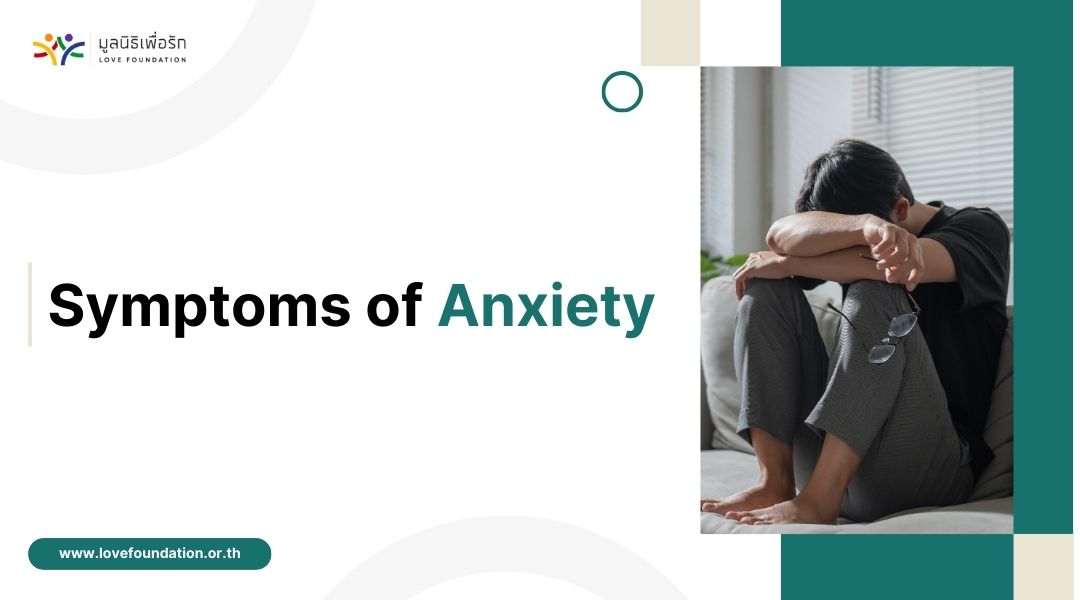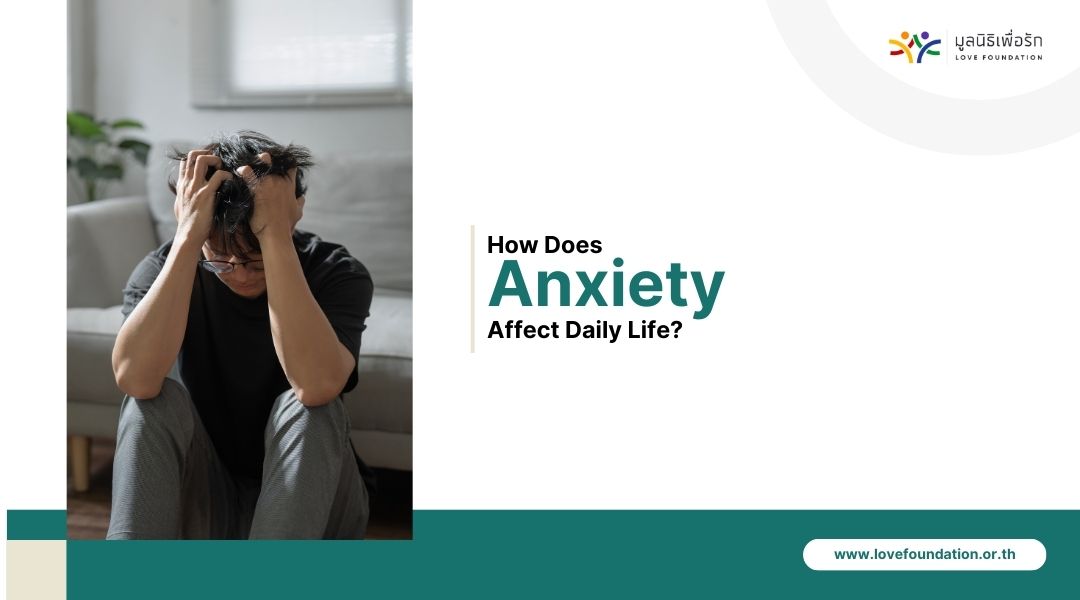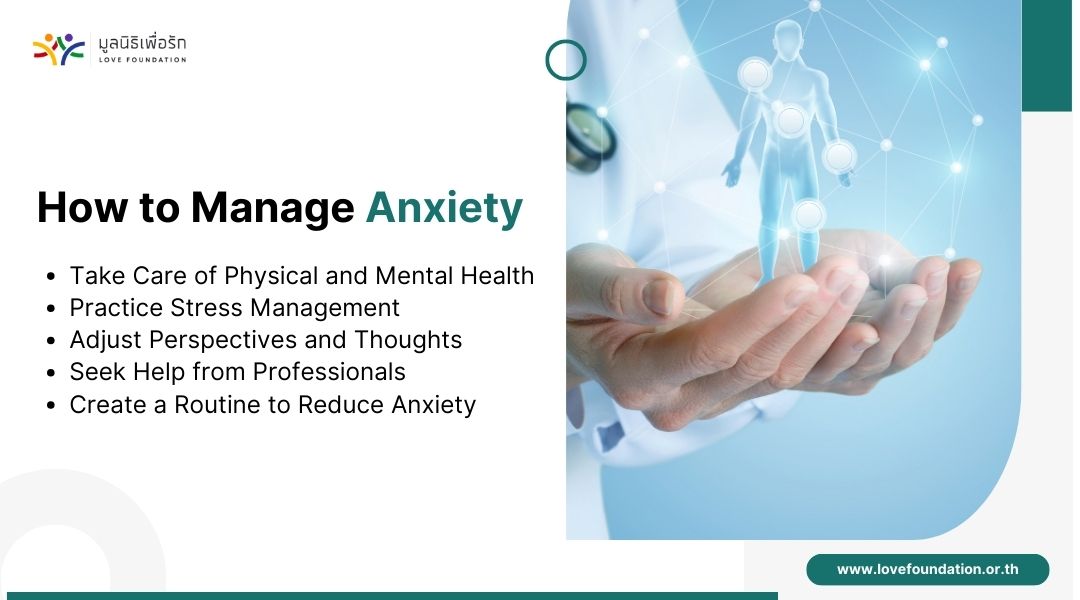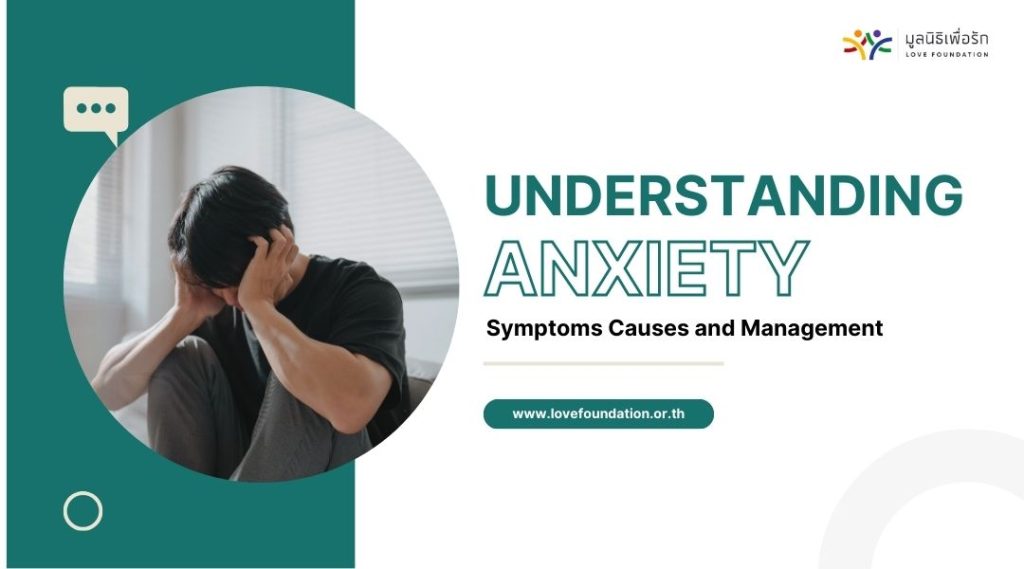What is Anxiety?
Anxiety is an emotional and physical reaction that occurs when we feel worried about the future or potential events in life. This feeling often arises from the perception of threats or uncertainty in daily life. While anxiety at a normal level can help motivate us to prepare for challenges, if this feeling becomes persistent and intense, it can have negative effects on both mental and physical health.
Symptoms of Anxiety

Can manifest in various ways, divided into physical and psychological symptoms.
Physical Symptoms: When anxiety occurs, the body responds to stress in different ways, which can show up in various symptoms
- Rapid or irregular heartbeat – Anxiety can cause the heart to beat faster or feel irregular.
- Shallow and rapid breathing – Some people may feel as if they can’t catch their breath or breathe too quickly.
- Excessive sweating – The body may respond by sweating more than usual.
- Muscle tension – Muscle tightness, such as neck, back, or shoulder pain, is common during anxiety.
- Nausea or bloating – Anxiety may affect the digestive system, leading to stomach discomfort.
- Dry mouth – Stress may cause dry mouth or a feeling of discomfort in the mouth.
Psychological Symptoms: Anxiety is not only expressed physically, but also manifests in psychological symptoms
- Excessive fear or worry – Anxiety may stem from anticipating negative events in the future.
- Difficulty concentrating – Anxiety can make it hard to focus on tasks effectively.
- Feeling out of control – Some people may feel they cannot control situations or their own emotions.
- Worries about death or failure – Intense thoughts of death or failure may occur during high anxiety.
- Insecurity or lack of self-confidence – People with anxiety often feel unsure of themselves or incapable of managing various situations.
Impact on Daily Life: When anxiety begins to interfere with daily life or activities that were once easy, managing it becomes more challenging.

- Avoiding situations – People with anxiety may avoid situations that trigger stress or worry, such as avoiding social events or gatherings.
- Insomnia – Anxiety may make it difficult to sleep comfortably or cause recurring nightmares that increase stress.
- Problems with work or study – Anxiety can affect focus, leading to difficulties at work or in studies.
Causes of Anxiety
How Does Affect Daily Life?

When anxiety exceeds normal levels, it can impact various aspects of life, including
- Physical and Mental Health: Unmanaged anxiety can lead to various health issues, such as high blood pressure, heart disease, or depression.
- Relationships: People with anxiety may struggle to communicate or maintain healthy relationships due to feelings of fear or insecurity.
- Work Performance: Ongoing anxiety can impair concentration, making it difficult to work effectively or complete tasks that require creativity and focus.
- Quality of Life: Anxiety may cause individuals to avoid situations they need to face, potentially leading to missed opportunities or a reduced ability to engage in life due to the fear of failure.
How to Manage Anxiety

Managing can be approached in various ways to help alleviate symptoms and reduce its impact on daily life
Taking Care of Physical and Mental Health
- Exercise regularly – Activities like walking, running, or yoga can help reduce stress.
- Eat a balanced diet – Include vegetables, fruits, and whole grains in your meals.
- Avoid excessive caffeine or alcohol consumption – These can increase levels.
Stress Management Techniques
- Practice deep breathing – Deep breathing exercises can help calm the nervous system.
- Practice meditation or mindfulness – These practices help reduce rumination and focus on the present moment.
Cognitive and Thought Adjustments
- Learn to think positively – Try to reframe negative thoughts and avoid putting too much pressure on yourself.
- Share your feelings – Talk to someone you trust for emotional support and advice.
Seeking Professional Help
- Talk to a psychologist or psychiatrist – Consulting a professional for therapy or advice can be beneficial.
- Consider medication – Anxiety medications, such as antianxiety drugs, should be used under medical supervision.
Creating Routines
- Balance work and rest – Set aside time for both productive activities and relaxation.
- Engage in enjoyable activities – Activities such as reading, listening to music, or hobbies can help take your mind off worries.


